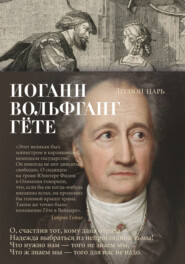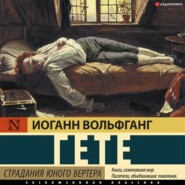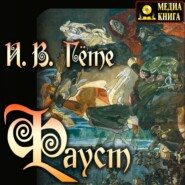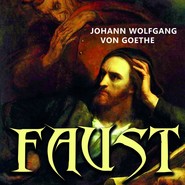По всем вопросам обращайтесь на: info@litportal.ru
(©) 2003-2024.
✖
The Autobiography of Goethe
Настройки чтения
Размер шрифта
Высота строк
Поля
The entrance of the Elector of Mentz, which we have refused to describe more completely, was magnificent and imposing enough to suggest to the imagination of an eminent man, the advent of a great prophesied World-Ruler; even we were not a little dazzled by it. But now our expectation was stretched to the utmost, as it was said that the Emperor and the future King were approaching the city. At a little distance from Sachsenhausen, a tent had been erected, in which the entire magistracy remained, to show the appropriate honour, and to proffer the keys of the city to the chief of the Empire. Further out, on a fair spacious plain, stood another – a state pavilion, whither the whole body of electoral princes and ambassadors repaired, while their retinues extended along the whole way, that gradually, as their turns came, they might again move towards the city, and enter properly into the procession. By this time the Emperor reached the tent, entered it, and the princes and ambassadors, after a most respectful reception, withdrew, to facilitate the passage of the chief ruler.
The Imperial Carriage.
We others who remained in the city to admire this pomp within the walls and streets, still more than could have been done in the open fields, were very well entertained for a while by the barricade set up by the citizens in the lanes, by the throng of people, and by the various jests and improprieties which arose, till the ringing of bells and the thunder of cannon announced to us the immediate approach of Majesty. What must have been particularly grateful to a Frankforter was, that on this occasion, in the presence of so many sovereigns and their representatives, the imperial city of Frankfort also appeared as a little sovereign; for her equerry opened the procession; chargers with armorial trappings, upon which the white eagle on a red field looked very fine, followed him; then came attendants and officials, drummers and trumpeters, and deputies of the council, accompanied by the clerks of the council, in the city livery, on foot. Immediately behind these were the three companies cf citizen cavalry, very well mounted – the same that we had seen from our youth, at the reception of the escort and on other public occasions. We rejoiced in our participation of the honour, and in our hundred-thousandth part of a sovereignty which now appeared in its full brilliancy. The different trains of the Hereditary Imperial Marshal, and of the envoys deputed by the six temporal Electors, marched after these step by step. None of them consisted of less than twenty attendants, and two state-carriages – some even of a greater number. The retinue of the spiritual Electors was ever on the increase, – their servants and domestic officers seemed innumerable, – the Elector of Cologne and the Elector of Treves had above twenty state-carriages, and the Elector of Mentz quite as many alone. The servants, both on horseback and on foot, were clothed most splendidly throughout; the lords in the equipages, spiritual and temporal, had not omitted to appear richly and venerably dressed, and adorned with all the badges of their orders. The train of his Imperial Majesty now, as was fit, surpassed all the rest. The riding-masters, the led horses, the equipages, the shabracks and caparisons, attracted every eye, and the sixteen six-horse gala-wagons of the Imperial Chamberlains, Privy Councillors, High Chamberlain, High Stewards, and High Equerry, closed, with great pomp, this division of the procession, which, in spite of its magnificence and extent, was still only to be the van-guard.
But now the line concentrated itself more and more, while the dignity and parade kept on increasing. For, in the midst of a chosen escort of their own domestic attendants, the most of them on foot, and a few on horseback, appeared the Electoral ambassadors as well as the Electors in person, in ascending order, each one in a magnificent state-carriage. Immediately behind the Elector of Mentz, ten imperial footmen, one and forty lackeys, and eight Heyducks,[17 - A class of attendants dressed in Hungarian costume. —Trans.] announced their Majesties. The most magnificent state-carriage, furnished even at the back part with an entire window of plate-glass, ornamented with paintings, lacker, carved work, and gilding, covered with red embroidered velvet on the top and inside, allowed us very conveniently to behold the Emperor and King, the long-desired heads, in all their glory. The procession was led a long circuitous route, partly from necessity, that it might be able to unfold itself, and partly to render it visible to the great multitude of people. It had passed through Sachsenhausen, over the bridge, up the Fahrgasse, then down the Zeile, and turned towards the inner city through the Katharinenpforte, formerly a gate, and since the enlargement of the city, an open thoroughfare. Here it had been fortunately considered that, for a series of years, the external grandeur of the world had gone on expanding both in height and breadth. Measure had been taken, and it was found that the present imperial state-carriage could not, without striking its carved work and other outward decorations, get through this gateway, through which so many princes and emperors had gone backwards and forwards. The matter was debated, and to avoid an inconvenient circuit, it was resolved to take up the pavements, and to contrive a gentle descent and ascent. With the same new they had also removed all the projecting eaves from the shops and booths in the street, that neither crown, nor eagle, nor the genii should receive any shock or injury.
Eagerly as we directed our eyes to the high personages when this precious vessel with such precious contents approached us, we could not avoid turning our looks upon the noble horses, their harness, and its embroidery; but the strange coachmen and outriders, both sitting on the horses, particularly struck us. They looked as if they had come from some other nation, or even worn another world, with their long black and yellow velvet coats, and their caps with large plumes of feathers, after the imperial court fashion. Now the crowd became so dense that it was impossible to distinguish much more. The Swiss guard on both sides of the carriage, the Hereditary Marshal holding the Saxon sword upwards in his right hand, the Field-Marshals, as leaders of the Imperial Guard, riding behind the carriage, the imperial pages in a body, and finally, the Imperial Horse-guard (Hatschiergarde) itself, in black velvet frocks (Flügelröck), with all the seams edged with gold, under which were red coats and leather-coloured camisoles, likewise richly decked with gold! One scarcely recovered oneself from sheer seeing, pointing, and showing, so that the scarcely less splendidly clad body-guards of the Electors were barely looked at, and we should perhaps have withdrawn from the windows, if we had not wished to take a view of our own magistracy, who closed the procession in their fifteen two-horse coaches, and particularly the clerk of the council, with the city keys on red velvet cushions. That our company of city grenadiers should cover the rear, seemed to us honourable enough, and we felt doubly and highly edified as Germans and as Frankfurters by this great day.
Maria Theresa.
We had taken our place in a house which the procession had to pass again when it returned from the cathedral. Of religious services, of music, of rites and solemnities, of addresses and answers, of propositions and readings aloud, there was so much in church, choir, and conclave, before it came to the swearing of the electoral capitulation, that we had time enough to partake of an excellent collation, and to empty many bottles to the health of our old and young ruler. The conversation, in the meanwhile, as is usual on such occasions, reverted to the time past, and there were not wanting aged persons who preferred that to the present, at least with respect to a certain human interest and impassioned sympathy which then prevailed. At the coronation of Francis the First all had not been so settled as now; peace had not yet been concluded; France and the Electors of Brandenburg and the Palatinate were opposed to the election; the troops of the future emperor were stationed at Heidelberg, where he had his head-quarters, and the insignia of the Empire coming from Aix, were almost carried off by the inhabitants of the Palatinate. Meanwhile negotiations went on, and on neither side was the affair conducted in the strictest manner. Maria Theresa, though then pregnant, comes in person to see the coronation of her husband, which is at last carried into effect. She arrived at Aschaffenburg, and went on board a yacht in order to repair to Frankfort. Francis, from Heidelberg, thinks to meet his wife, but comes too late; she has already departed. Unknown, he throws himself into a little boat, hastens after her, reaches her ship, and the loving pair is delighted at this surprising meeting. The story spreads immediately, and all the world sympathizes with this tender pair, so richly blessed with their children, who have been so inseparable since their union, that once on a journey from Vienna to Florence they are forced to keep quarantine together on the Venetian border. Maria Theresa is welcomed in the city with rejoicings, she enters the Roman Emperor inn, while the great tent for the reception of her husband is erected on the Bornheim heath. There of the spiritual Electors is found only Mentz, and of the ambassadors of the temporal Electors, only Saxony, Bohemia, and Hanover. The entrance begins, and what it may lack of completeness and splendour is richly compensated by the presence of a beautiful lady. She stands upon the balcony of the well-situated house, and greets her husband with cries of Vivat and clapping of hands; the people joined, excited to the highest enthusiasm. As the great are, after all, men, the citizen thinks them his equals when he wishes to love them, and that he can best do when he can picture them to himself as loving husbands, tender parents, devoted brothers, and true friends. At that time all happiness had been wished and prophesied, and to-day it was seen fulfilled in the first-born son; to whom everybody was well inclined on account of his handsome youthful form, and upon whom the world set the greatest hopes, on account of the great qualities that he showed.
We had become quite absorbed in the past and future, when some friends who came in recalled us to the present. They were of those who know the value of novelty, and therefore hasten to announce it first. They were even able to tell of a fine humane trait in those exalted personages whom we had seen go by with the greatest pomp. It had been concerted that on the way, between Heusenstamm and the great tent, the Emperor and King should find the Landgrave of Darmstadt in the forest. This old prince, now approaching the grave, wished to see once more the master to whom he had been devoted in former times. Both might remember the day when the Landgrave brought over to Heidelberg the decree of the Electors choosing Francis as Emperor, and replied to the valuable presents he received with protestations of unalterable devotion. These eminent persons stood in a grove of firs, and the Landgrave, weak with old age, supported himself against a pine, to continue the conversation, which was not without emotion on both sides. The place was afterwards marked in an innocent way, and we young people sometimes wandered to it.
Thus several hours had passed in remembrance of the old and consideration of the new, when the procession, though curtailed and more compact, again passed before our eyes, and we were enabled to observe and mark the detail more closely, and imprint it on our minds for the future.
From that moment the city was in uninterrupted motion; for until each and every one whom it behoved, and of whom it was required, had paid their respects to the highest dignities, and exhibited themselves one by one, there was no end to the marching to and fro, and the court of each one of the high persons present could be very conveniently repeated in detail.
Now, too, the insignia of the Empire arrived. But that no ancient usage might be omitted even in this respect, they had to remain half a day till late at night in the open field, on recount of a dispute about territory and escort between the Elector of Mentz and the city. The latter yielded, the people of Mentz escorted the insignia as far as the barricade, and so the affair terminated for this time.
At Evening with Gretchen.
In these days I did not come to myself. At home I had to write and copy; everything had to be seen; and so ended the month of March, the second half of which had been so rich in festivals for us. I had promised Gretchen a faithful and complete account of what had lately happened, and of what was to be expected on the coronation-day. This great day approached; I thought more how I should tell it to her than of what properly was to be told; all that came under my eyes and my pen I merely worked up rapidly for this sole and immediate use. At last I reached her residence somewhat late one evening, and was not a little proud to think how my discourse on this occasion would be much more successful than the first unprepared one. But a momentary incitement often brings us, and others through us, more joy than the most deliberate purpose can afford; I found, indeed, pretty nearly the same company, but there were some unknown persons among them. They sat down to play, all except Gretchen and her younger cousin, who remained with me at the slate. The dear girl expressed most gracefully her delight that she, though a stranger, had passed for a citizen on the election-day, and had taken part in that unique spectacle. She thanked me most warmly for having managed to take care of her, and for having been so attentive as to procure her, through Pylades, all sorts of admissions by means of billets, directions, friends, and intercessions.
She liked to hear about the jewels of the Empire. I promised her that we should, if possible, see these together. She made some jesting remarks when she learned that the garments and crown had been tried on the young king. I knew where she would gaze at the solemnities of the coronation-day, and directed her attention to everything that was impending, and particularly to what might be minutely inspected from her place of view.
Thus we forgot to think about time; it was already past midnight; and I found that I unfortunately had not the house-key with me. I could not enter the house without making the greatest disturbance. I communicated my embarrassment to her. "After all," said she, "it will be best for the company to remain together." The cousins and the strangers had already had this in mind, because it was not known where they would be lodged for the night. The matter was soon decided; Gretchen went to make some coffee, after bringing in and lighting a large brass lamp, furnished with oil and wick, because the candles threatened to burn out.
The coffee served to enliven us for several hours, but the game gradually slackened; conversation failed; the mother slept in the great chair; the strangers, weary from travelling, nodded here and there, and Pylades and his fair one sat in a corner. She had laid her head on his shoulder and had gone to sleep, and he did not keep long awake. The younger cousin sitting opposite to us by the slate, had crossed his arms before him, and slept with his face resting upon them. I sat in the window-corner, behind the table, and Gretchen by me. We talked in a low voice: but at last sleep overcame her also, she leaned her head on my shoulder, and sank at once into a slumber. Thus I now sat, the only one awake, in a most singular position, in which the kind brother of death soon put me also to rest. I went to sleep, and when I awoke it was already bright day. Gretchen was standing before the mirror arranging her little cap; she was more lovely than ever, and when I departed cordially pressed my hands. I crept home by a roundabout way; for, on the side towards the little Stag-ditch, my father had opened a sort of little peep-hole in the wall, not without the opposition of his neighbour. This side we avoided when we wanted not to be observed by him in coming home. My mother, whose mediation always came in well for us, had endeavoured to palliate my absence in the morning at breakfast, by the supposition that I had gone out early, and I experienced no disagreeable effects from this innocent night.

















